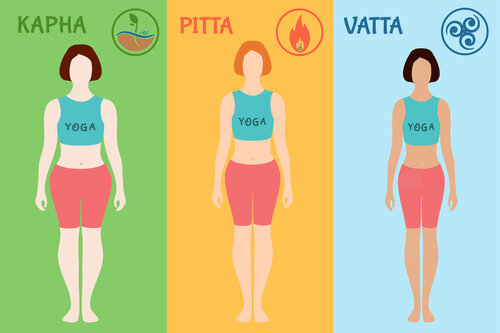
How to Determine Your Ayurvedic Body Type
Posted by Gwendolyn Wise on 2023-01-09
There are a lot of ways to determine your Ayurvedic body type. For example, you can use a questionnaire or read about it in an Ayurvedic book. Whichever way you choose, make sure you get the facts first. Getting accurate information about your Ayurvedic body type is vital in incorporating Ayurveda into your life.
Vata
Knowing your Ayurvedic body type is one of the first steps to improving your health. This information can help you make lifestyle choices that support your body's needs.
The three doshas in Ayurveda are Pitta, Vata, and Kapha. Each of these body types is characterized by a specific combination of elements. These elements can be thought of as bioenergies in the body. When these elements are out of balance, they can disrupt the natural flow of energy.
Vata, which is the predominant dosha in the body, is ruled by air and space. It governs the physical and emotional qualities of the body.
People with the Vata body type are often very active and move through life quickly. They are creative, communicative, and have a large number of ideas. However, they may be prone to feeling restless or moody.
Pitta
Knowing your body type can be a great help when it comes to dieting. For example, Pitta-type individuals should avoid eating spicy foods. Likewise, Kapha types should avoid greasy and oily foods.
Ayurveda is a holistic approach to life. It recognizes the five elements that make up the human body. These elements, which are classified into three doshas, explain specific characteristics. The doshas are Vata, Kapha and Pitta. They are described as biological energies throughout the body. Fortunately, they can be treated and restored to balance.
When an imbalance is detected in one of these doshas, it is important to address it as soon as possible. Unbalanced doshas can lead to a variety of health issues. Most commonly, they are caused by emotional trauma.
Kapha
Understanding your Ayurvedic body type is vital to health and wellness. Ayurveda recognizes three basic body types: Kapha, Pitta, and Vata. Each one has unique characteristics that contribute to a healthy body. By understanding your type, you can make dietary and lifestyle choices that support your body's needs.
Kapha is a water and earth element that represents a person's overall constitution. Kapha helps people stay healthy by providing stability. It also hydrates the skin, lubricates joints, and protects tissues. Having a Kapha body type can help you avoid some common illnesses.
Kapha people tend to be relaxed, calm, and easy-going. They have thick, dark hair. Their bodies are usually built to last. They have large eyes and broad chests. If you have a Kapha body type, you should keep your diet simple and avoid spicy and oily foods.
Authentically discover your dosha
Knowing your dosha in Ayurvedic body type will help you live a healthier and more balanced life. In addition, this ancient science can help you deal with common health issues, such as low energy and anxiety.
Doshas are the primary energies of the human body. They are grouped into three fundamental energies - Vata, Pitta, and Kapha. If any of the doshas become overactive or unbalanced, they can lead to illness.
Understanding your dosha in Ayurvedic Body Type will enable you to understand your challenges and strengths. The right balance is essential for good health.
Each of the three doshas has unique characteristics. Your predominant dosha is known as your dominant Prakriti. You can find your dominant dosha by looking at your physical characteristics, mental disposition, and health concerns.
Products that support your dosha
If you want to keep your body, mind, and spirit balanced, then it's important to find Ayurvedic products that support your dosha. Each person has a unique pattern of energy. These qualities can be affected by external factors, such as pollution, stress, and disease.
To maintain balance, Ayurvedic medicine suggests that you adopt the proper diet and lifestyle. It also recommends taking herbs that help to remove built-up toxins. This approach is opposite to the conventional Western medicine approach, which focuses on treating specific ailments.
Ayurvedic medicine is based on the theory of five elements. The three humors, or Doshas, are Pitta, Kapha, and Vata. They are each responsible for different functions in the body. Those with an imbalance may feel unwell, experience muscle spasms, or develop allergies.